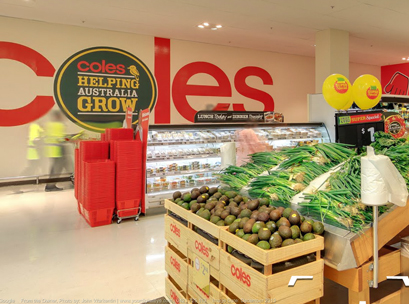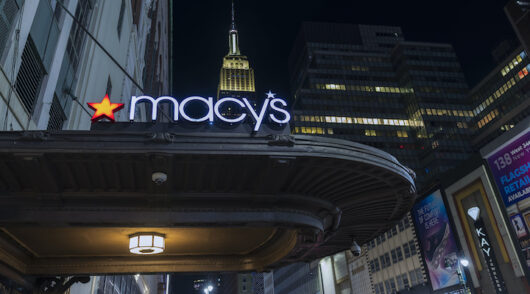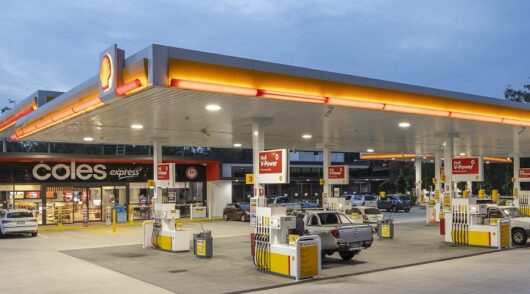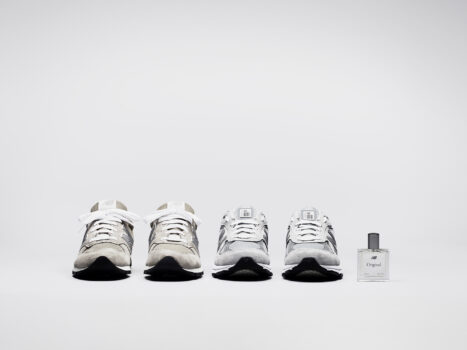 Coles has ‘lost its way’ and has fallen behind Woolworths in the vast majority of key performance metrics over the last twelve months, according to an influential survey of suppliers.
Coles has ‘lost its way’ and has fallen behind Woolworths in the vast majority of key performance metrics over the last twelve months, according to an influential survey of suppliers.
A recent survey of 45 FMCG suppliers carried out by investment bank UBS has outlined a raft of concerns about the performance of the Wesfarmers-owned supermarket chain, including that customer facing metrics are deteriorating, and that staff calibre and moral are near all-time lows for the survey, now in its 23rd edition.
Respondents scored Woolworths Food and Coles across 26 sub-categories, ranging from in-store execution to company culture, finding that Woolworths not only ‘won’ the key Christmas period, but that is well positioned moving into 2018 after extending its lead in 24 of 26 metrics.
The feedback has prompted UBS, to cut its earnings forecast for Coles in FY18-20 by 3-6 per cent, given that the survey has historically been a good indicator for future performance of like-for-like sales between Coles and Woolworths.
Coles no longer leads in any sub-category, a reversal to its relative strength in the eyes of key suppliers twelve months ago, with an overall score of 5.5/10 compared to 6.4 for Woolworths.
Coles scores in key areas decreased significantly since the June 2017 survey compared to Woolworths, including on instore execution (down .5 points), strategic & tactical (down .7 points) and on culture (down 0.6 points).
Suppliers also said that Coles’ marketing strategy has become less effective and that its strategy has become reactionary, with an “over-reliance on price-based promotions and not enough focus on other value measures (quality, community, family).
“The decline in scores was worrying, and suggests Coles’ investment in staff, price and marketing over 2017 has had little impact in the view of suppliers,” UBS said.
Woolworths performed better, particularly in on-shelf availability (up .2 points) and freshness (up .4 points), but UBS said there is still room for improvement, particularly in private label (down .9 points) and use of data (down 1.3 points).
Coles requires incremental investment
Woolworths’ supermarket division performed much better than Coles in 2H17 and in the first quarter of fiscal 18, with the former booking a 4.9 per cent increase in food sales for Q118, compared to 1.5 per cent growth at Coles.
UBS believes Coles will need to step-up its incremental investment to shift its strategy, and that this will put pressure on its earnings over the next two-fiscal years.
“We believe the key question facing Coles now is, does Coles need to shift its strategy or step up investment?,” UBS said.
“After relinquishing in Jun-17, Coles’ execution scores deteriorated further in our January 2018 survey, with WW’s lead increasing to 0.9pts (vs. 0.2).
“A deteriorating score at Coles was the driver with WW’s score flat vs. Jun-17. The decline in Coles’ score was a concern given the announced step-up in staff investment, reduced displays and focus on execution over the Christmas period.
“In our view, these declines suggest further investment is needed by Coles, highlighting risk to margin,” UBS said.
It comes after Woolworths revealed its store of the future earlier this week, with Claire Peters jumping into her new role committed to remaining ahead of Coles following Woolies’ $1 billion investment in price and service to bring itself back into the competitive fore in 2016.
Issue is not price
One area where Coles is still performing, however, is value. UBS found that suppliers ‘relative value perception’ scores remained unchanged in the most recent survey, suggesting that while price messaging scores declined for both supermarkets, Woolworths did not gain an upper hand.
“We believe this reflects Coles and WW alluding to the fact they are comfortable with pricing and did not see a need to step up intensity further,” UBS said.
UBS said that the market is likely to remain rational, despite being competitive, although inflation is not expected to return to historical levels.
Given that price is not the primary issue, UBS suggested that an increased focus on differentiation, such as instore events or theatre, could be an avenue Coles could explore.
Coles scored just 5.3 on in-store theatre in the eyes of suppliers compared to 6.3 at Woolworths.
Over the last seven months key moves between Woolworths and Coles appear to have been in the areas of in-store compliance, where Woolworths has invested in preventing out-of-stock instances, and overall store presentation, where Woolworths has increased its lead by 1.1 points to 7.2, compared to 6.1 at Coles.
Woolworths has accelerated its store refurbishment program in FY18 and has also begun engaging in smaller scale store revamps to bolster its efforts, while at the same time Coles has just begun re-accelerating refurbishments after slowing down in FY16/17.





